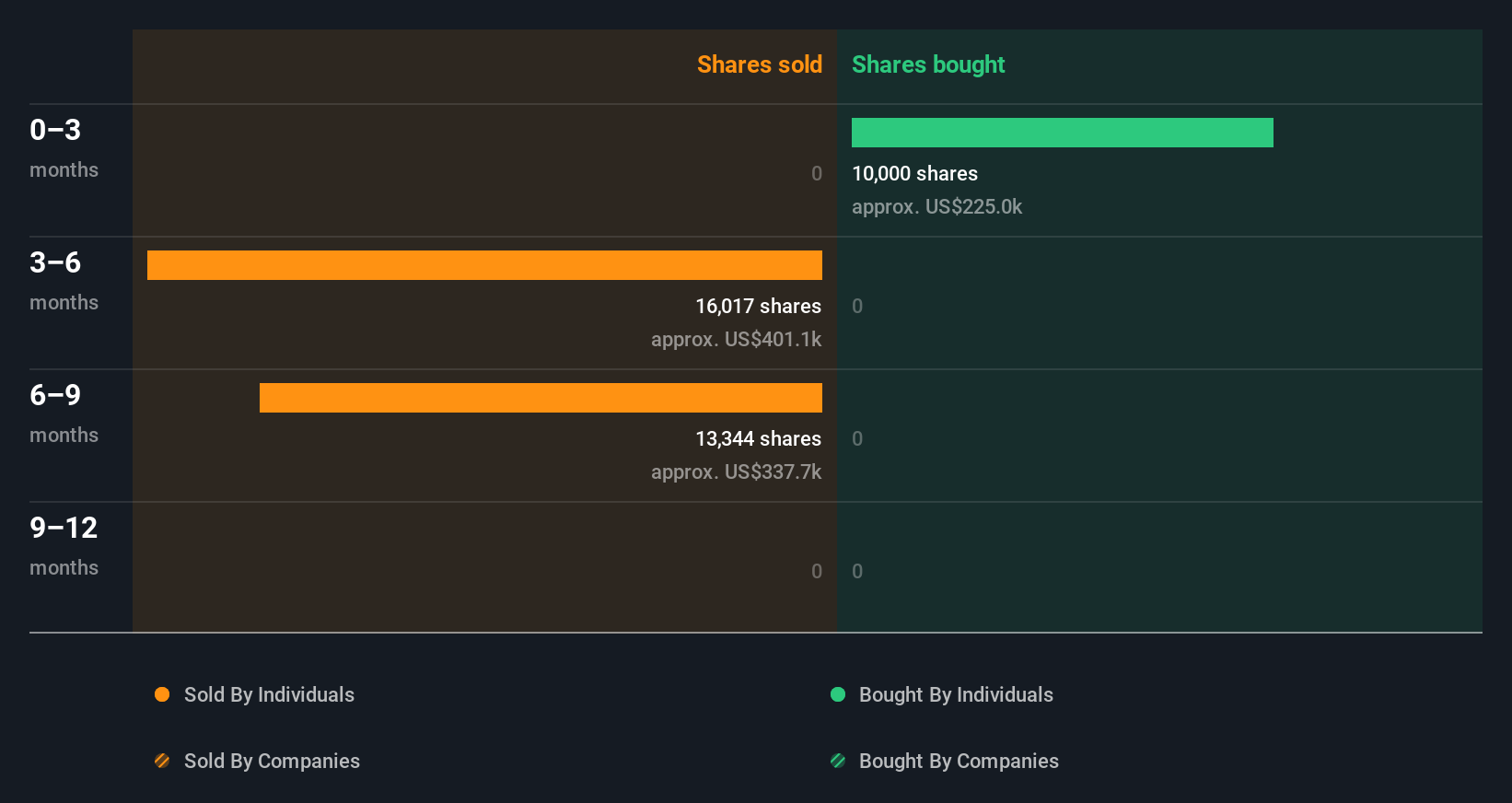
A number of Ryerson Holding Corporation (NYSE:RYI) insiders sold their shares in the last year, which may have raised concerns among investors. When evaluating insider transactions, knowing whether insiders are buying is usually more beneficial than knowing whether they are selling, as the latter can be open to many interpretations. However, when multiple insiders sell stock over a specific duration, shareholders should take notice as that could possibly be a red flag.
While we would never suggest that investors should base their decisions solely on what the directors of a company have been doing, we would consider it foolish to ignore insider transactions altogether.
Ryerson Holding Insider Transactions Over The Last Year
In the last twelve months, the biggest single sale by an insider was when the President, Edward Lehner, sold US$248k worth of shares at a price of US$24.79 per share. While we don't usually like to see insider selling, it's more concerning if the sales take place at a lower price. It's of some comfort that this sale was conducted at a price well above the current share price, which is US$19.19. So it may not shed much light on insider confidence at current levels.
Over the last year we saw more insider selling of Ryerson Holding shares, than buying. You can see the insider transactions (by companies and individuals) over the last year depicted in the chart below. If you click on the chart, you can see all the individual transactions, including the share price, individual, and the date!
See our latest analysis for Ryerson Holding

If you are like me, then you will not want to miss this free list of small cap stocks that are not only being bought by insiders but also have attractive valuations.
Insiders At Ryerson Holding Have Bought Stock Recently
Over the last quarter, Ryerson Holding insiders have spent a meaningful amount on shares. Independent Chair of the Board Stephen Larson spent US$225k on stock, and there wasn't any selling. That shows some optimism about the company's future.
Insider Ownership Of Ryerson Holding
For a common shareholder, it is worth checking how many shares are held by company insiders. A high insider ownership often makes company leadership more mindful of shareholder interests. Ryerson Holding insiders own about US$28m worth of shares. That equates to 4.3% of the company. While this is a strong but not outstanding level of insider ownership, it's enough to indicate some alignment between management and smaller shareholders.
So What Do The Ryerson Holding Insider Transactions Indicate?
It's certainly positive to see the recent insider purchase. On the other hand the transaction history, over the last year, isn't so positive. The more recent transactions are a positive, but Ryerson Holding insiders haven't shown the sustained enthusiasm that we look for, although they do own a decent number of shares, overall. So they seem pretty well aligned, overall. So these insider transactions can help us build a thesis about the stock, but it's also worthwhile knowing the risks facing this company. Our analysis shows 2 warning signs for Ryerson Holding (1 shouldn't be ignored!) and we strongly recommend you look at these before investing.
If you would prefer to check out another company -- one with potentially superior financials -- then do not miss this free list of interesting companies, that have HIGH return on equity and low debt.
For the purposes of this article, insiders are those individuals who report their transactions to the relevant regulatory body. We currently account for open market transactions and private dispositions of direct interests only, but not derivative transactions or indirect interests.
Have feedback on this article? Concerned about the content? Get in touch with us directly. Alternatively, email editorial-team (at) simplywallst.com.
This article by Simply Wall St is general in nature. We provide commentary based on historical data and analyst forecasts only using an unbiased methodology and our articles are not intended to be financial advice. It does not constitute a recommendation to buy or sell any stock, and does not take account of your objectives, or your financial situation. We aim to bring you long-term focused analysis driven by fundamental data. Note that our analysis may not factor in the latest price-sensitive company announcements or qualitative material. Simply Wall St has no position in any stocks mentioned.